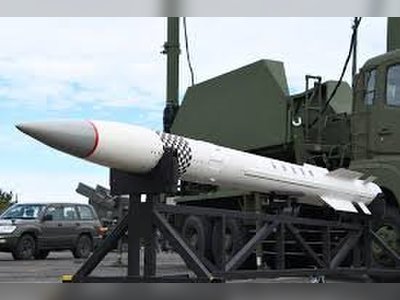
Bulgaria and Romania Join Schengen Area for Air and Sea Travel, Austrian Veto Delays Land Borders
Bulgaria and Romania officially joined Europe's Schengen Area on Sunday, allowing for free movement by air and sea without border checks.
However, Austria's veto means land routes will not be affected, raising concerns over asylum seekers.
The symbolic value of Schengen membership is significant for both countries, representing a sense of dignity and belonging to the EU.
Romanians and Bulgarians have felt discriminated against with separate lanes at borders.
A Bulgarian marketing executive, Ivan Petrov, expressed excitement about easier and less stressful travel.
The European Union (EU) welcomed Romania and Bulgaria into the Schengen Area on March 25, 2024, making it the largest zone of free movement in the world with 29 members.
The EU's chief, Ursula von der Leyen, described it as a historic moment and a success for both countries.
Romania will apply Schengen rules to four sea ports and 17 airports, with Otopeni airport serving as the biggest hub.
Trucks were shown queuing at the Bulgarian-Romanian border in the given image.
Romania and Bulgaria will partially join the Schengen Area on March 31, with air and sea borders opening.
Discussions are ongoing for land borders.
More border police and immigration officers will be deployed to airports to support passengers and detect illegal activity.
Random checks will be conducted for false documents and to combat human trafficking.
Both countries aim to fully integrate into Schengen by the end of the year, but Austria has only agreed to air and sea routes.
Croatia, which joined the EU after Romania and Bulgaria, became the 27th Schengen member in January 2023.
The Schengen Area, created in 1985, allows over 400 million people to travel freely without internal border controls.
Truck drivers in Romania and Bulgaria are experiencing significant financial losses due to long wait times at the borders with their European neighbors.
The Romanian road transport union, UNTRR, has called for urgent measures to achieve full Schengen integration and end the wait times.
The union estimates that Romanian hauliers lose billions of euros annually due to these delays, with wait times at the Hungarian border averaging eight to 16 hours and at the Bulgarian border averaging 20 to 30 hours, with some peaks lasting up to three days.
Bulgarian businesses are also affected, as 97% of their goods are transported by land.
The European Union's Schengen Area, which allows for free movement between member countries, currently includes only 3% of its total members: Romania and Bulgaria.
The two countries, which have joined the EU but not yet the Schengen Area, have stated that they will not withdraw from the process.
Romanian Interior Minister Catalin Predoiu has emphasized that the Schengen expansion is "irreversible" and must be completed by 2024, including the extension to land borders.
The symbolic value of Schengen membership is significant for both countries, representing a sense of dignity and belonging to the EU.
Romanians and Bulgarians have felt discriminated against with separate lanes at borders.
A Bulgarian marketing executive, Ivan Petrov, expressed excitement about easier and less stressful travel.
The European Union (EU) welcomed Romania and Bulgaria into the Schengen Area on March 25, 2024, making it the largest zone of free movement in the world with 29 members.
The EU's chief, Ursula von der Leyen, described it as a historic moment and a success for both countries.
Romania will apply Schengen rules to four sea ports and 17 airports, with Otopeni airport serving as the biggest hub.
Trucks were shown queuing at the Bulgarian-Romanian border in the given image.
Romania and Bulgaria will partially join the Schengen Area on March 31, with air and sea borders opening.
Discussions are ongoing for land borders.
More border police and immigration officers will be deployed to airports to support passengers and detect illegal activity.
Random checks will be conducted for false documents and to combat human trafficking.
Both countries aim to fully integrate into Schengen by the end of the year, but Austria has only agreed to air and sea routes.
Croatia, which joined the EU after Romania and Bulgaria, became the 27th Schengen member in January 2023.
The Schengen Area, created in 1985, allows over 400 million people to travel freely without internal border controls.
Truck drivers in Romania and Bulgaria are experiencing significant financial losses due to long wait times at the borders with their European neighbors.
The Romanian road transport union, UNTRR, has called for urgent measures to achieve full Schengen integration and end the wait times.
The union estimates that Romanian hauliers lose billions of euros annually due to these delays, with wait times at the Hungarian border averaging eight to 16 hours and at the Bulgarian border averaging 20 to 30 hours, with some peaks lasting up to three days.
Bulgarian businesses are also affected, as 97% of their goods are transported by land.
The European Union's Schengen Area, which allows for free movement between member countries, currently includes only 3% of its total members: Romania and Bulgaria.
The two countries, which have joined the EU but not yet the Schengen Area, have stated that they will not withdraw from the process.
Romanian Interior Minister Catalin Predoiu has emphasized that the Schengen expansion is "irreversible" and must be completed by 2024, including the extension to land borders.
Translation:
Translated by AI











